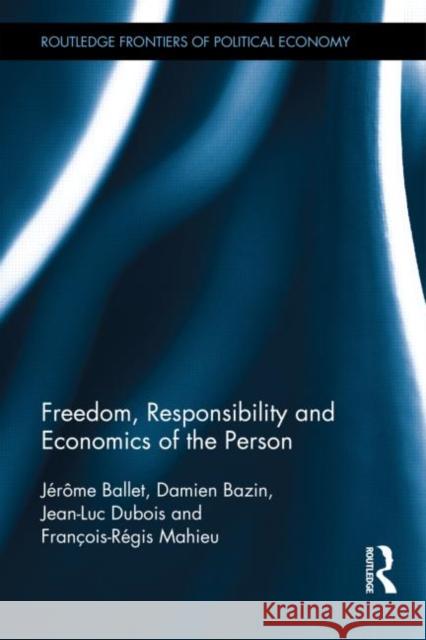Freedom, Responsibility and Economics of the Person » książka
Freedom, Responsibility and Economics of the Person
ISBN-13: 9780415596985 / Angielski / Twarda / 2013 / 174 str.
Freedom, Responsibility and Economics of the Person
ISBN-13: 9780415596985 / Angielski / Twarda / 2013 / 174 str.
(netto: 699,68 VAT: 5%)
Najniższa cena z 30 dni: 705,23
ok. 16-18 dni roboczych.
Darmowa dostawa!
The Capability Approach has developed significantly since Amartya Sen was awarded the Nobel Prize in Economics in 1998. It is now recognised as being highly beneficial in the analysis of poverty and inequality, but also in the redefinition of policies aimed at improving the well-being of individuals.
Although acknowledging the undeniable progress that the approach has made in renewing the thinking on the development and well-being of a population, this book takes a critical stance. It focuses particularly on the approach s inadequateness vis- -vis the continental phenomenological tradition and draws conclusions about the economic analysis of development. In a more specific sense, it highlights the fact that the approach is too bound by standard economic logic and this has prevented it from taking account of a key person dimension, namely, the ability of a person to assume responsibility. As a result, this book advocates the notion that if the approach is used carelessly in relation to development policies, it can cause a number of pernicious effects, some of which may lead to disastrous consequences.











